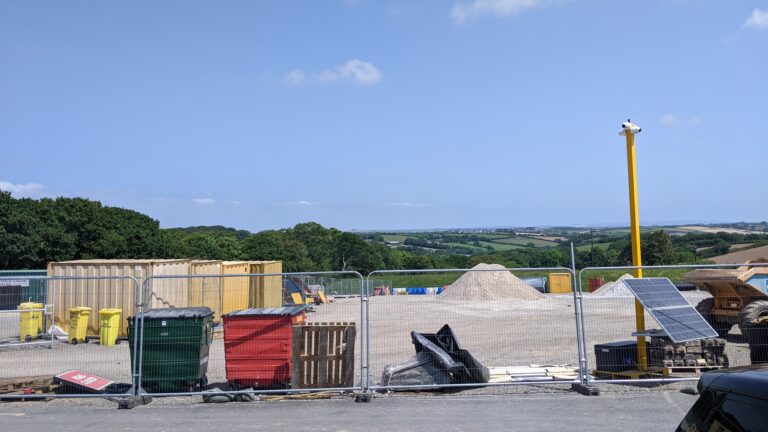Members of the Commission secretariat travelled to Truro on Tuesday (6 June) for discussions with local political leaders, infrastructure operators and businesses and voluntary sector bodies from across the county – and energy was high up the agenda.
Hosted by senior officials from Cornwall Council and joined by the leader and chief executive, the session served to gather views and insights on the region’s infrastructure priorities ahead of the publication of the second National Infrastructure Assessment later this autumn and to share the Commission’s current thinking.

The team heard about huge potential benefits to Cornwall’s economy from the green energy revolution: the Council has set itself an ambition to reach net zero greenhouse gas emissions by 2030 – less than seven years away; to that end, it also wants to fully exploit the potential for offshore wind generation in the seas surrounding most of the county.
In addition, those round the table focused on the significant economic benefits offered through mining the region’s critical mineral resources, such as lithium, which will be essential for the UK’s shift to a fully electrified economy. To do that, there needs to be significant investment in the electricity grid across Cornwall, ahead of which a number of regulatory hurdles would have to be overcome.
Heating, too, presents both challenges and opportunities for the county. Any transition to low carbon heating sources, the Commission heard, will have to address the fact that much of the housing stock is old and difficult to retrofit, and a high proportion of homes are not on the gas network. Furthermore, a potential deficit in the pool of available ‘green’ skills in the region is also regarded as an impediment to expanding the installation and maintenance of heat pumps.
The impact of more extreme weather patterns as a result of climate change present significant challenges for the resilience of the region’s infrastructure: flooding remains a critical issue for some towns, and there is concern that some towns risk being left behind in the government’s national strategic flood risk management plans. Many localities are also having to adapt to the threat from rising sea levels.
Discussions concluded, the team visited Langarth Garden Village. Currently just a building site, the development has at its heart a new low carbon heat network as part of efforts to ensure the development is as resilient and low carbon as it can be when the first residents move in.





